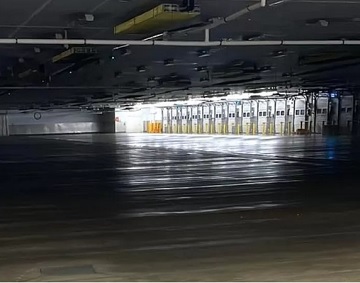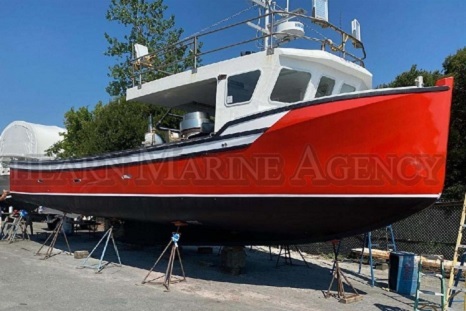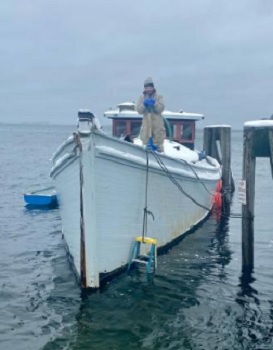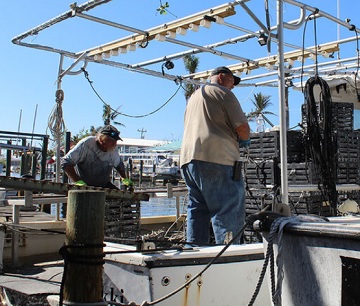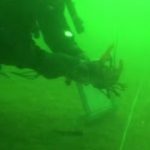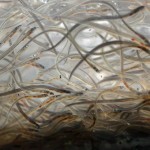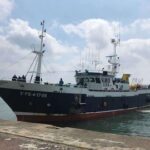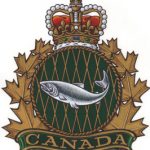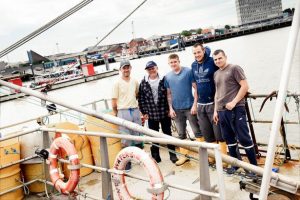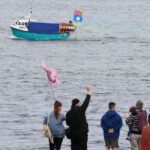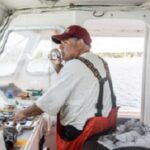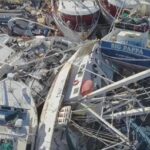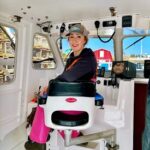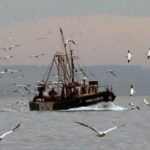Monthly Archives: January 2023
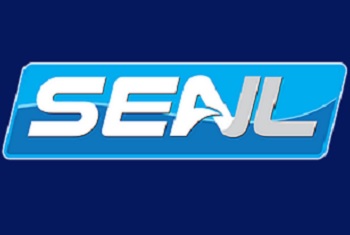
Elections and electronic logbooks; SEA-NL AGM set for Feb. 25th
Seaward Enterprises Association of Newfoundland and Labrador (SEA-NL) has scheduled its first annual general meeting (AGM) for Saturday, Feb. 25th, at the Albatross Hotel in Gander, and will feature an election for a new president and regional representatives. “Nominations open today for enterprise owners willing to step up for their fleets and the future of the inshore fishery,” says Ryan Cleary, Executive Director of SEA-NL. “The leaders we need must not be bought and paid for or out for themselves but focused on the overall health and direction of the inshore as a whole.” The election of a new SEA-NL president was trigged earlier this month with the resignation of Jason Sullivan, SEA-NL’s first president elected at the 2022 founding convention. >click to read< 08:37
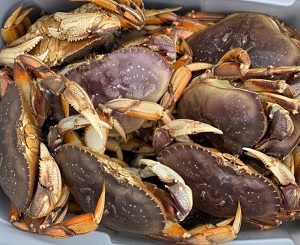
Southern portion of Oregon’s commercial Dungeness crab fishery opens
Commercial Dungeness crab fishing opens Feb. 4 on the remaining southern portion of Oregon’s coastline from Cape Arago (just south of Charleston) to the California border. The earliest a crab season may start is Dec. 1 pending meat fill and biotoxin results. This year, the season opener was delayed due to crab in some areas with low meat fill or high domoic acid levels in crab viscera (guts). It opened Jan. 15 from Cape Falcon to Cape Arago and opens Feb. 1 from Cape Falcon to the Washington border. While the announcement today opens the season Feb. 4 from Cape Arago south, the BMZ location and timing will be dependent on results of on-going biotoxin testing. >click to read< 07:41
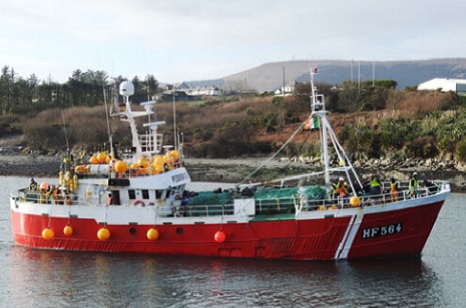
Naval service detains Spanish trawler off the south-west coast
A German-registered Spanish vessel which was involved in a confrontation off the Scottish coast over two years ago German-registered Spanish vessel has been detained by the Naval Service off the south-west coast. The 26m Pesorsa Dos was detained last Saturday, January 21, by the LÉ George Bernard Shaw, but it took several days to haul its gear before it could be escorted into Castletownbere, Co Cork today. The same vessel from La Coruna in northern Spain was previously detained in the Irish exclusive economic zone, 250 miles north of Donegal’s Malin Head, in July 2020. It’s understood the 1974-built 27m long fishing vessel, which left the Spanish port of La Caruna on January 2, had shot gill nets and was fishing in deep water for monkfish. >click to read< 17:32
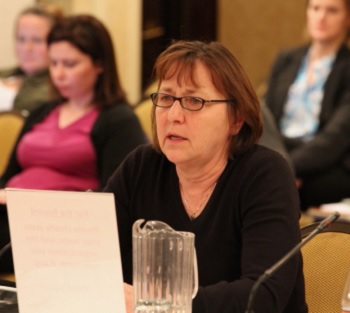
Council Presents 2022 Award for Excellence to Maggie Raymond
The New England Fishery Management Council honored Maggie Raymond, former Executive Director of Associated Fisheries of Maine and a 25-year participant in the Council process, by presenting her with the 2022 Janice M. Plante Award for Excellence. Council Chair Eric Reid called the recognition “long overdue.” “Maggie represents the epitome of someone dedicated to both the commercial fishing industry and sustainable fisheries management,” said Chair Reid. ““Today we’re highlighting Maggie’s contributions to our own Council process,” said Chair Reid, “but her work for fishermen and the fishing industry was not limited to the Council. She was a key member of the New England fishing community for over 27 years and continues to make contributions even in her supposed ‘retirement.’” >click to read< 13:50
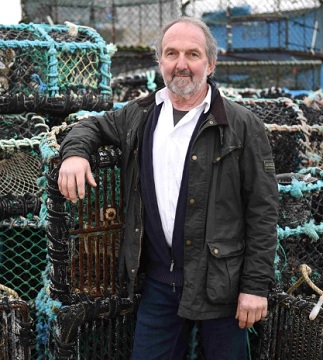
Fishing licence plan ‘bordering on naive’
The government’s plan to prevent French fishing boats depleting stocks in Jersey’s waters is ‘bordering on the naive’, according to local fishermen – as temporary licences allowing European vessels access to local waters expire next week. Jersey Fishermen’s Association president Don Thompson said he feared the 136 French boats licensed to fish in the Island’s territorial waters might decrease in number over time but retiring boats would be replaced by larger, more efficient vessels. These boats would quickly be able to wipe out rich grounds around the Island, such as scallop beds near the Minquiers, leaving Jersey fishermen with little to catch, Mr Thompson told the Environment, Housing and Infrastructure Scrutiny Panel yesterday. >click to read< 12:37
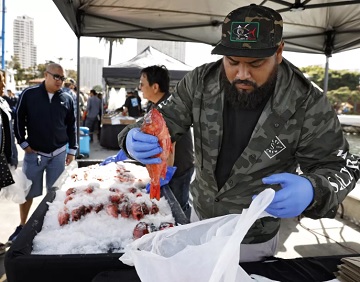
Biden needs to help California fishermen in our dispute over dangerous fish farms
When people think of California, they think of our coasts. Our vibrant ocean sustains a robust seafood industry, as well as many hospitality, tourism and recreation businesses. But in recent years, our coastal enterprises have faced a litany of challenges; pollution, climate change and development along the coast have made it difficult for independent businesses to survive. Now in 2023, another threat is looming: The National Oceans and Atmospheric Administration is scoping out Southern California as a new site for industrial-scale finfish farms. Last spring, NOAA identified 10 Aquaculture Opportunity Areas off the coast of Southern California. These areas are deemed ideal for offshore fish farms, despite the fact that two of them are in close proximity to a Superfund site where 500,000 barrels of the banned pesticide DDT were dumped. >click to read< 10:00
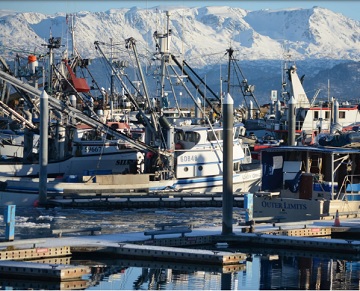
Lawsuit threatens to shut down Southeast salmon troll fishery
An ongoing lawsuit by a Washington State environmental group is threatening to shut down the Southeast Alaska salmon troll fishery in the summer and winter to help endangered Puget Sound orca whales, and has prompted the trollers to ask the City of Sitka to help pony up for legal bills. The Seattle-based group Wild Fish Conservancy filed suit last year and a federal court ruled last August that the National Marine Fisheries Service had violated the Endangered Species Act and the National Environmental Policy Act in approving salmon harvests in the Southeast troll fishery, which catches chinook salmon, a key food source for the Puget Sound orcas. In the meantime, lawsuits and rulings are continuing. >click to read< 08:36
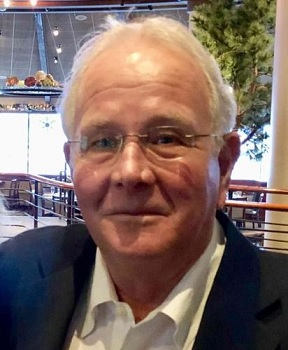
Commercial Fisherman Alf Ludvig Forde of Mukilteo, Washington has passed away
Alf Ludvig Forde (80) died peacefully at home in Mukilteo, Washington in the early morning January 4th, 2023 of natural causes. Alf was born November 9th, 1942 to Alf and Odney Forde in Ketchikan, Alaska. Alf was an Alaskan commercial fisherman. He started fishing on his dad’s boat at a young-age, eventually owning 2 halibut longliners and 3 Bering Sea crab boats. Alf built his business through hard work and honesty. He was respected as an extremely fair person not only with partners, but also among crew, fish buyers and professionals throughout the industry and beyond.
Alf’s greatest personal achievement was his family. >click to read< 15:26
Athearn Marine Agency Boat of the Week: 47’X18′ 2010 Novi Lobster, Gillnetter, Tuna – Open Stern/Split Wheelhouse
To review specifications, information, and 44 photos’, >click here<, To see all the boats in this series >click here< 12:01
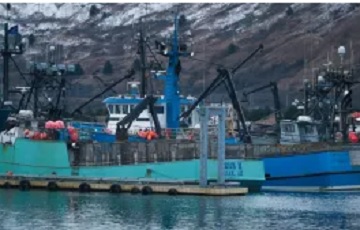
It’s been more than a week, and Kodiak’s Tanner crab stand down continues
Crabbers in Kodiak still haven’t come to an agreement with the island’s canneries on prices for this year’s harvest. And this weekend, the fleet voted again to continue standing down – with no plans to meet again until they get a better offer from processors. Kodiak’s fleet voted down an offer from local processors for $3.25 per pound for Tanners on Friday. Canneries had initially offered $2.50 per pound ahead of the season. And Sunday night, crabbers voted to press pause on the season altogether until they get a price from canneries they think is fair. “We all thought we were going to be fishing, but we all understand why we aren’t fishing,” said Kevin Abena the secretary and treasurer for the Kodiak Crab Alliance Cooperative, which represents permit holders in the fishery. “So, we’re just waiting.”>click to read< 10:59
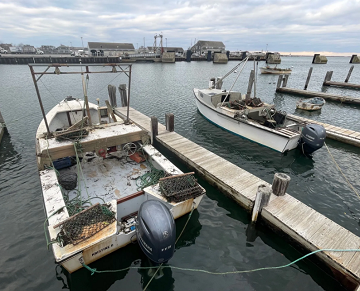
Why Are Island Scallopers Struggling To Sell Their Catch On Nantucket?
It’s the peak of Nantucket’s commercial scalloping season, but one of the island’s long-running scallopers, Bob DeCosta, isn’t on the water. And he’s not the only local fisherman whose dredges are dry these days. “I’m not fishing because I have no place to sell them,” DeCosta said. “This is a new thing. It’s unfortunate because there’s still plenty of scallops out there to be caught.” Despite what fishermen have described as one of the best seasons in recent memory, DeCosta and some other island scallopers are struggling to sell their catch on Nantucket. There were already limited options on the island, and with the recent closure of Glidden’s Seafood for several months, a number of fishermen in the island’s fleet have been unable to find buyers for their scallops. >click to read< 09:53
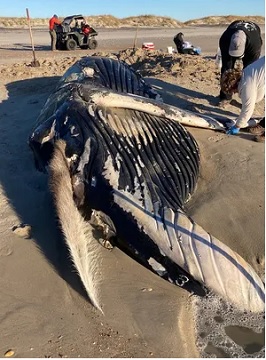
Whale deaths in NC and along the East Coast have officials searching for answers
On Jan. 7, a critically endangered North Atlantic right whale calf was found dead, wedged under a pier in Morehead City. In the previous month, three humpback whales washed up on beaches between Beaufort and the northern Outer Banks. The four North Carolina deaths are part of at least 14 whales that have washed up on East Coast beaches since Dec. 1. Federal officials, scientists and conservation groups have said there could be multiple factors contributing to the rise in whale strandings, including an increase in the population of the Western North Atlantic humpback whales. But one idea that’s gained traction online and among some coastal residents and politicians is that huge offshore wind farms planned off many East Coast states, including North Carolina, could be harming the marine mammals. >click to read< 08:46
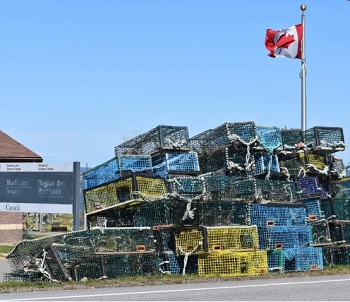
Nova Scotia cracks down on lobster operators to protect industry’s ‘integrity’- Suspensions issued at 2 lobster pounds
In August 2018, Fisher Direct in Shag Harbour, N.S., was caught with lobster harvested under an Indigenous licence, which bars selling the catch. The pound, which has annual sales upwards of $20 million, had received a shipment of 1,400 kilograms of lobsters the day before federal fisheries officers descended on the facility. Inside the 31 crates, officers found 48 lobsters tagged for Indigenous food, social or ceremonial purposes that the department had previously microchipped. Meanwhile, a larger operation in southwestern Nova Scotia is also facing at least one licence suspension. In 2021, Atlantic ChiCan on Cape Sable Island was convicted for illegally shipping American lobsters to China, claiming they came from Canada. >click to read< 07:16
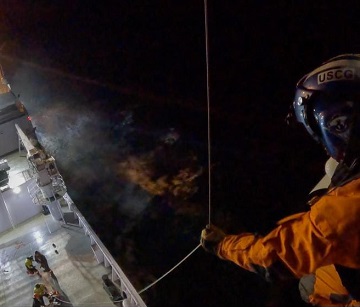
Coast Guard medevacs man from fishing vessel near Dutch Harbor, Alaska
A Coast Guard Air Station Kodiak aircrew, forward deployed to Cold Bay, medically evacuated a mariner from a fishing vessel near Dutch Harbor, Tuesday morning. The MH-60 Jayhawk helicopter aircrew hoisted the 47-year-old man from the 310-foot fishing vessel F/V Northern Eagle and transported him back to Cold Bay for a wing-to-wing transfer with LifeMed Alaska personnel. Watchstanders at the Coast Guard 17th District command center, in Juneau, received the initial request for the medevac Tuesday at 5:55 a.m. from the vessel’s crew that a fellow crew member had injured his right hand. >click to read< 20:52
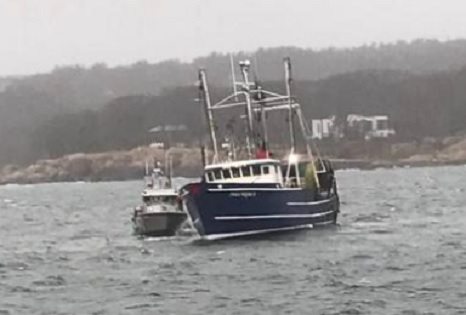
16-hour Coast Guard tow brings F/V Miss Trish II home
The crew of a Gloucester fishing vessel spent about 12 hours adrift far from shore after its transmission failed and before the Coast Guard towed it home. Coast Guard officials, responding to an emergency call from the Miss Trish II were able to reach the boat about 75 miles offshore over the weekend and tow her safely back to port. Jim Bridges, commanding officer at U.S. Coast Guard Station Gloucester said none of the six men aboard the Miss Trish II were injured during the incident. Crew on the Miss Trish II called the Coast Guard around 5 p.m. Saturday, Bridges said, indicating the ship’s engine would not start. >click to read< 18:34

NEFMC Council Executive Director Tom Nies Announces Retirement
The New England Fishery Management Council opened its January 24-26, 2023 meeting in Portsmouth, NH with the news that Executive Director Thomas A. Nies, a 25-year veteran of the Council staff, will be retiring this summer. The Council will immediately initiate a nationwide search for his replacement. Tom joined the Council staff in 1997. He first worked on the Atlantic Herring Fishery Management Plan and then spent 13 years as the Council’s lead analyst for groundfish. In that role, he led the Groundfish Plan Development Team (PDT), as he did the Herring PDT beforehand. Tom also helped develop a standardized bycatch reporting methodology for Northeast fisheries. He became Executive Director in 2013. >click to read< 14:29
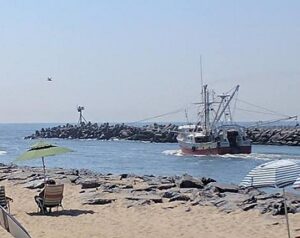
Long awaited dredging of the Manasquan Inlet in New Jersey is finally taking place
There is news all mayors and towns along the coastal towns from the southern shore end of Monmouth County and from the northern barrier island communities in Ocean County have longed to hear: that dredging will commence in the Manasquan Inlet. An announcement was made on Monday afternoon by U.S. Congressman Chris Smith (R – Monmouth/Ocean) that the U.S. Army Corps of Engineers head to the Manasquan Inlet as early as this week to commence a massive dredging operation which will help marine traffic and beaches. The dredging project will be split between the Manasquan Inlet and Shark River Inlet with the ladder getting a primary focus from the Army Corps of Engineers. >click to read< 12:38
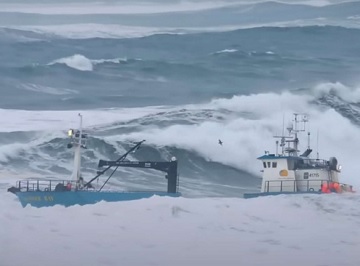
The Deadliest Catch and Other Crab Fishermen Need to Find a New Alaskan Spot Thanks to Climate Change
Even if you’ve only been a fan of Discovery’s “Deadliest Catch” for a short period of time, it’s still pretty obvious that the list of essential steps needed for the featured captains and boats to rake in a season’s worth of seafood remains consistent. On top of a meticulously maintained boat, needed are traps, bait, backup equipment, a solid crew, and more than a handful of other necessities. Of course, the most important detail is the one thing these brave fishermen are there for in the first place, and that’s the crab itself. However, due to climate change, the fishing industry on the Bering Sea has been flipped on its head. >click to read< 11:31

Industrial wind: Sierra Club should stick to their own back yard and leave mine alone
When I go to the beach, which I do almost every day, I prefer to look out on an empty ocean where the only sign of civilization is a fishing boat or two. I can see why a giant multinational energy company would want to spoil that view with 900-foot wind turbines that generate both electricity and money. But why would the Sierra Club? They cite climate change as the reason, but there are other sources of carbon-free energy such as nuclear, which the Club opposes. When I got him on the phone yesterday, Mayor Paul Kanitra told me the people in his town oppose “the industrialization of the last pristine natural resource we have in New Jersey.” “We don’t want this dystopian viewscape of red lights flashing at night and turbines droning,” Kanitra said. >click to read< 10:37

Southern Shore Lawmakers Say Unprecedented Whale Deaths Warrant Suspension of Offshore Wind Projects
Sen. Michael Testa and Assemblymen Erik Simonsen and Antwan McClellan are intensifying calls to suspend offshore wind projects following an unprecedented number of whale deaths along the coasts of New Jersey and New York. They join a chorus of concerned elected officials and environmental and commercial fishing groups who are worried the push for more offshore wind development has contributed to the death of seven whales in a little over a month, including two on the endangered species list. Despite the opposition, Gov. Phil Murphy continues his aggressive green energy goals, which calls for increasing offshore electric wind generation to 11,000 megawatts by 2040. >click to read< 08:08
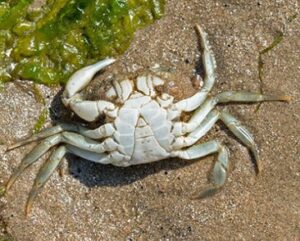
Defra accused of ‘remarkably poor scientific practice’ over crabs
University academics have criticised a government-commissioned report into mass crab die-offs on England’s north-east coast, with one accusing it of “remarkably poor scientific practice”, and they pledged to continue their research into the matter. The academics, from the universities of Newcastle, Durham and York, believe pollution caused crab and lobster deaths rather than a new pathogen, which a report from the environment department found to be the most likely cause of the deaths despite no direct evidence for such a disease. The report, and its criticisms, follow controversy over an unusually large number of dead or dying crabs and lobsters found along the north-east coast of England in the autumn and winter of 202. >click to read< 16:11
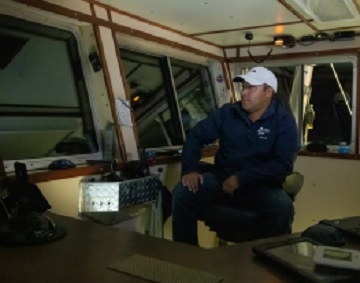
How new fishing technology could help save North Atlantic right whales
Captain Martin Noel and his crew have returned to the fishing grounds to retrieve their crab traps from the Gulf of St. Lawrence, about 140 kilometres off Shippagan, N.B. At the press of a button on Noel’s smartphone, an acoustic signal from a floating transducer pings an oxygen tank at the bottom of the ocean. That cues the tank to inflate a buoy, in turn, sending to the surface a line of traps from 300 feet below. Brimming with one of Canada’s most lucrative seafood catches, snow crab, these on-demand traps are pivotal to Canada’s plans to protect one of the world’s most critically endangered populations of large whales. >click to read< 10:06
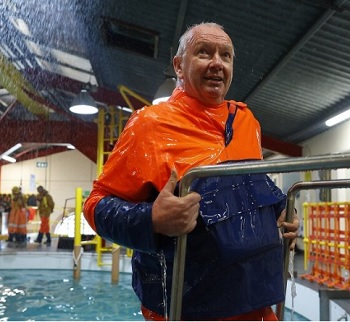
FISHERS GAIN VITAL ‘MAN OVERBOARD’ EXPERIENCE AT DONEGAL TRAINING CENTRE
Thirty-five fishers gained life-saving training at Man Overboard sessions in the Errigal Training Centre, Falcarragh, Co. Donegal this weekend. The classes were provided free of charge by Bord Iascaigh Mhara (BIM), Ireland’s Seafood Development Agency, in partnership with the RNLI. The sessions are designed to provide fishers with the experience of falling into cold sea conditions, wearing full work clothing and without their Personal Floatation Device (PFD), or lifejacket as they are commonly known. This is then followed by the same experience with a correctly fitted PFD. >click to read< 08:31
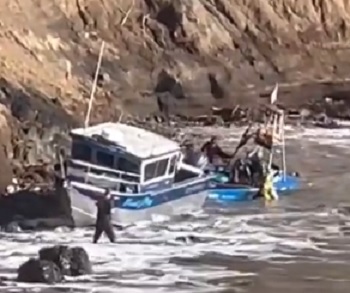
FUNDRAISER FOR OWNER OF BOAT DAMAGED WHEN TRYING TO HELP ANOTHER
Locals are jumping in to help Luke Sack, a local crabber, whose boat was damaged while trying to help another boat that got into trouble in Shelter Cove yesterday. The organizer, Lisa Machi Pleger wrote, “On Saturday January 21st Luke set out to retrieve his crab when he noticed a sport boat in distress, Luke did what any hero would do and came to their rescue only to end up in trouble himself. His boat washed ashore and was severely damaged. Many of his electronics are ruined, along with his motors and the vessel itself. >click to read< the rest, and please, donate if you can! 18:33
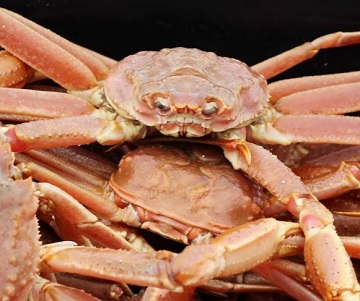
N.L. snow crab sales to Japan displaced by Russia
While many countries are imposing sanctions on Russia as a result of the war in Ukraine, Japan is taking advantage of low Russian snow crab prices. Clifford Small, MP for Coast of Bays-Central-Notre Dame and federal fisheries critic, says that is preventing Newfoundland and Labrador processors from selling their crab to Japan, as they normally do. “To have one of our major markets dry up on us, and to dry up in a sense that basically they started buying from a country like Russia — that’s at war in Ukraine — flies in the face of what you’d expect from a great trading partner and an ally,” he said. >click to read< 15:44
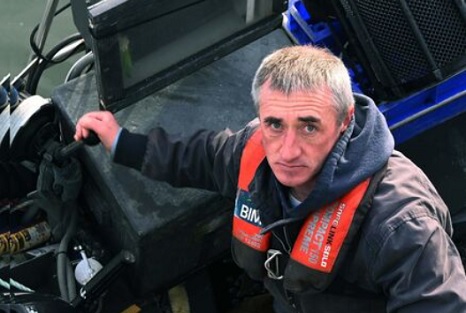
Calls for €12m fund to help inshore fishing industry
The Government is to be asked to give Ireland’s inshore fishers more than €12m to help them deal with the disruption to their markets caused by the war in Ukraine and the pandemic. The market in shrimp, for example, has collapsed, with one group of around 600 smaller inshore fishers losing an estimated total of €5m in the build-up to last Christmas. Their representatives have seen more than €100m in packages to help the much larger, offshore sector boat owners deal with the negative impacts of Brexit, which is mainly the cut in quota and resulting 40% fall in income. But they say that despite having 91% of the country’s entire fishing fleet, and employing the majority of Irish fishers, Ireland’s inshore sector has, by comparison, received around €3.7m. >click to read< 11:26
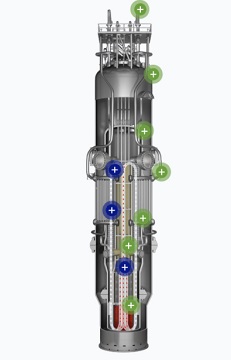
1st small modular nuclear reactor certified for use in U.S.
The U.S. Nuclear Regulatory Commission has certified the design for what will be the United States’ first small modular nuclear reactor. The rule that certifies the design was published Thursday in the Federal Register. It means that companies seeking to build and operate a nuclear power plant can pick the design for a 50-megawatt, advanced light-water small modular nuclear reactor by Oregon-based NuScale Power and apply to the NRC for a license. It’s the final determination that the design is acceptable for use, so it can’t be legally challenged during the licensing process when someone applies to build and operate a nuclear power plant, NRC spokesperson Scott Burnell said Friday. The rule becomes effective in late February. >click to read< 10:32






